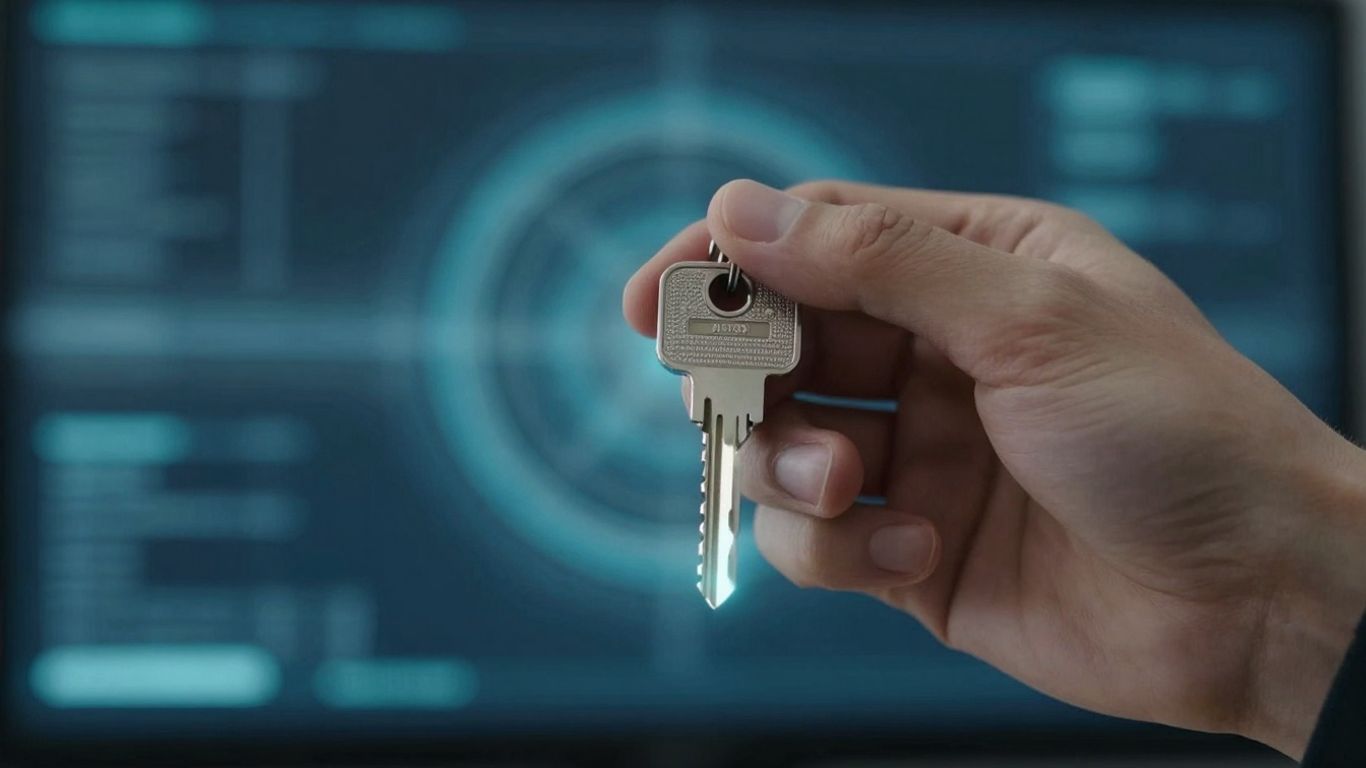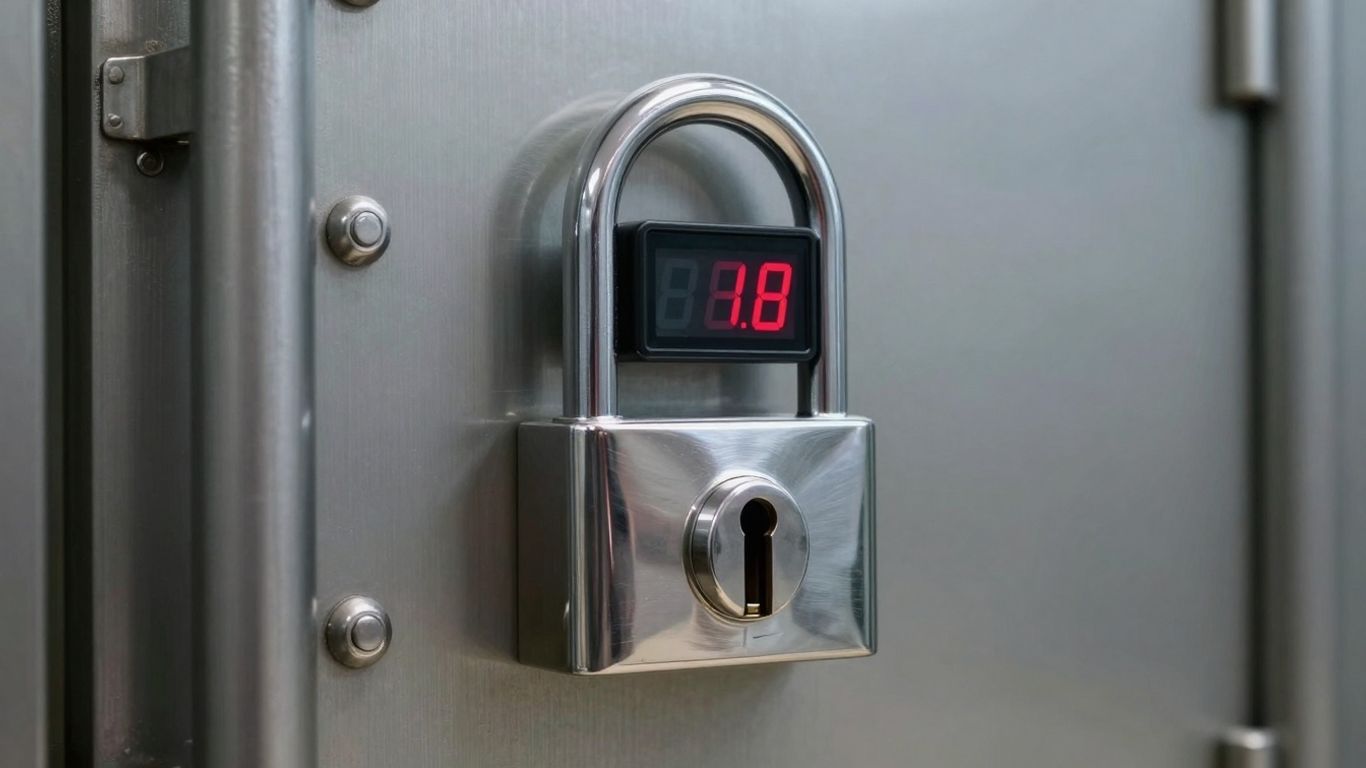[ newsletter ]
Stay ahead of Web3 threats—subscribe to our newsletter for the latest in blockchain security insights and updates.
Thank you! Your submission has been received!
Oops! Something went wrong. Please try again.
Explore the comparison of blockchain audit tools, their features, strengths, and best practices for effective use.





In the ever-evolving world of blockchain, ensuring the security and integrity of smart contracts is crucial. Blockchain audit tools play a significant role in this process, helping developers identify vulnerabilities and ensure compliance. This article will explore various aspects of these tools, from their key features to emerging trends, so you can make informed decisions about which tools to use for your projects.
Blockchain audit tools are becoming super important as more and more stuff moves onto the blockchain. It's not just about finding bugs anymore; it's about making sure the whole system is secure and works the way it's supposed to. Let's break down some of the key features you'll find in these tools.
The ability to automatically scan code for common vulnerabilities is a game-changer. Instead of manually going through every line, these tools can quickly flag potential issues like reentrancy attacks or integer overflows. This saves a ton of time and reduces the chance of human error. Plus, some tools can even generate reports that explain the vulnerabilities in plain language, which is super helpful if you're not a security expert. It's like having a tireless assistant that never misses a thing. This is especially useful for smart contract auditing.
No one wants to use a tool that feels like you're programming a VCR. A good blockchain audit tool should have a clean, intuitive interface that makes it easy to navigate and understand the results. This means clear visualizations, simple controls, and helpful documentation. The goal is to make the auditing process accessible to as many people as possible, not just the hardcore developers. Think drag-and-drop functionality, interactive dashboards, and maybe even a built-in tutorial or two.
Imagine having to switch between your code editor and your audit tool every time you want to check something. Sounds annoying, right? That's why integration with popular development environments like Remix or Truffle is a must-have. This allows you to run audits directly from your workflow, making it much easier to catch issues early on. It's all about streamlining the process and making security a natural part of development, not an afterthought. Think of it as having a security guard right there in your coding space, always watching your back.
Blockchain audit tools are not a silver bullet. They are most effective when used as part of a comprehensive security strategy that includes manual code reviews, penetration testing, and ongoing monitoring.
Here's a quick look at how different tools stack up in terms of integration:
It's tough to pick the "best" blockchain audit tool because what works for one project might not be ideal for another. Different tools shine in different areas. Let's break down some popular options and where they excel.
Some tools are just better at finding certain types of vulnerabilities. Tools using symbolic execution, like Mythril, are generally good at deep vulnerability detection. Others, like static analysis tools, might be faster but could miss more subtle issues. The accuracy also depends on how well the tool is maintained and updated with the latest vulnerability patterns. For example, Securify 2.0 offers thorough security assessments, but it's not actively maintained anymore, which is a big drawback. It's like having a really smart detective who's retired – they know their stuff, but they're not keeping up with the current cases. Choosing the right tool depends on the specific security risks you're most concerned about.
Time is money, especially when you're on a tight development schedule. Some tools can churn through code much faster than others. Static analysis tools are often quicker because they don't execute the code. Fuzzing tools, like Echidna, can be effective but slower, especially for large contracts. Symbolic execution, while thorough, can also take a while. The speed of analysis is a trade-off with accuracy. You might get results faster with one tool, but you might miss critical vulnerabilities that a slower, more in-depth tool would catch. Consider the size and complexity of your smart contracts when choosing a tool. For large projects, you might need to balance speed with thoroughness, perhaps using a combination of tools.
Having a strong community behind a tool can be a lifesaver. If you run into problems or need help understanding the results, a responsive community can provide support, share knowledge, and even contribute to the tool's development. Tools like Solidity-Coverage (Solcover) have good community support, making it easier to troubleshoot issues and learn best practices. A tool with good documentation and tutorials is also a plus. If you're new to blockchain auditing, a tool with a supportive community can make the learning curve much less steep. Plus, a vibrant community often means the tool is actively maintained and updated, which is crucial for staying ahead of emerging threats.
Think of it like this: a tool with a strong community is like having a team of experts on call, ready to help you out when you get stuck. A tool without a community is like being stranded on a desert island with only a manual for company. Which would you prefer?
Blockchain audit tools are pretty great, but they aren't perfect. It's important to understand where they fall short so you can use them effectively and not get a false sense of security. They're a tool, not a magic bullet.
One common issue is the occurrence of false positives. Audit tools sometimes flag issues that aren't actually vulnerabilities. This can lead to wasted time investigating problems that don't exist. It's like your car alarm going off for no reason – annoying and distracting. You end up spending time checking everything out, only to find nothing wrong. This is especially true with more complex smart contracts where the tool might misinterpret the code's intent. It's important to have someone who really knows their stuff to sort through the reports and figure out what's real and what's not. Auditing crypto companies can be tricky, and these tools aren't always spot-on.
These tools aren't plug-and-play. You need someone who knows what they're doing to use them effectively. If you don't understand the output or how to interpret the results, the tool is useless. It's like giving a fancy camera to someone who only knows how to use their phone's camera – they won't get the full benefit. Here's what you need to know:
It's important to remember that audit tools are just that – tools. They augment the auditor's abilities but don't replace the need for skilled professionals. A good auditor will use the tool to guide their investigation, but they'll also rely on their own knowledge and experience to identify vulnerabilities.
Good blockchain audit tools can be expensive. The cost can be a barrier for smaller projects or individual developers. There are free tools available, but they often lack the features and accuracy of paid options. It's a trade-off between cost and quality. Here's a quick comparison:
Choosing the right tool depends on your budget and the complexity of your project. Don't just grab the cheapest one; think about what you really need. Also, remember that the cost of an audit tool is nothing compared to the cost of a security breach. It's an investment in the security of your project.
Blockchain audit tools aren't just for finding bugs; they're becoming essential across a range of applications. From making sure smart contracts work as intended to keeping up with regulations, these tools are proving their worth. Let's take a look at some specific ways they're being used.
Blockchain audit tools are vital in smart contract development for identifying vulnerabilities before deployment. Think of it like spell-checking for code, but instead of typos, it catches potential security flaws. This is super important because once a smart contract is out there, it's often immutable, meaning you can't just patch it if something goes wrong. Tools help developers write more secure and reliable code from the start. It's about building trust and confidence in the system.
Staying compliant with regulations is a big deal, especially as blockchain tech becomes more mainstream. Audit tools can help organizations meet these requirements by providing a clear record of their blockchain activities. This includes things like transaction monitoring, data integrity checks, and ensuring adherence to specific industry standards. It's about showing that you're playing by the rules and maintaining transparency. You can find public audit reports in the Audit Archive.
Blockchain audit tools play a key role in risk management by helping to identify and mitigate potential threats. This could involve analyzing smart contracts for vulnerabilities, monitoring network activity for suspicious behavior, or assessing the overall security posture of a blockchain system. By proactively addressing these risks, organizations can protect themselves from financial losses, reputational damage, and other negative consequences. It's about being prepared and minimizing potential downsides.
Using blockchain audit tools is like having a security guard for your digital assets. They constantly monitor for threats, identify weaknesses, and help you take action to protect your investments. It's a proactive approach to security that can make all the difference in the long run.

Blockchain auditing is changing fast. It's not just about finding bugs anymore; it's about preventing them in the first place and adapting to new blockchain technologies. Here's what's coming up:
AI and machine learning are starting to play a bigger role. These technologies can analyze code faster and more thoroughly than humans, identifying potential vulnerabilities that might be missed. It's like having a super-powered code reviewer that never gets tired.
Think about it: AI can learn from past audits, recognize patterns, and predict where new problems might arise. This means audits can become more proactive, catching issues before they even make it into the code. It's not perfect, but it's a big step forward.
Instead of just auditing code once it's written, there's a move towards continuous, real-time monitoring. This means constantly checking smart contracts and blockchain systems for suspicious activity. It's like having a security guard on duty 24/7.
Here's how it could work:
Real-time monitoring can help catch attacks as they happen, giving developers a chance to respond quickly and prevent major damage. It's all about being proactive and staying one step ahead of the bad guys.
Traditional audits are often centralized, with a single firm or group of experts doing the work. But there's a growing interest in decentralized auditing, where multiple parties can participate in the process. This can make audits more transparent and trustworthy.
Decentralized auditing could involve:
This approach could lead to more thorough and unbiased audits, as different perspectives and expertise are brought to bear. Plus, it aligns with the core principles of blockchain technology itself.
Okay, so you've got these fancy automated tools, right? They're great for catching the obvious stuff, like simple bugs or blatant security holes. But here's the thing: they're not perfect. Relying solely on automated tools is like trusting a robot to write a love letter – it might get the grammar right, but it'll miss the heart. You absolutely need a human element. A skilled auditor can spot logical flaws, business logic vulnerabilities, and other subtle issues that a tool might just skip over. Think of it as a tag team: the tool does the heavy lifting of initial scanning, and the human auditor comes in to do the deep dive and critical thinking. It's about getting the best of both worlds for a truly robust audit.
Blockchain audit tools aren't a 'set it and forget it' kind of deal. The blockchain landscape is constantly evolving, with new attack vectors and vulnerabilities popping up all the time. If you're using an outdated tool, you're basically fighting modern warfare with a rusty sword. Make sure you're keeping your tools updated with the latest vulnerability definitions and security patches. This also means staying informed about the latest trends in blockchain security and understanding how those trends might impact your audit process. It's a continuous learning process, but it's essential for maintaining a strong security posture. You should also integrate KYC processes to enhance security and prevent risks.
Having the best tools in the world won't do you any good if you don't know how to use them properly. It's like giving a Formula 1 car to someone who's only ever driven a minivan. You need to invest in training your team on how to effectively use the audit tools at your disposal. This includes understanding the tool's features, interpreting its reports, and knowing how to follow up on its findings. Don't just assume that everyone knows what they're doing. Provide formal training, encourage experimentation, and foster a culture of continuous learning. A well-trained team is your best defense against blockchain vulnerabilities.
Think of blockchain audit tools like a powerful microscope. They can reveal hidden details, but only if you know how to focus and interpret what you're seeing. Without proper training and understanding, you might miss critical clues or misinterpret the data, leading to inaccurate conclusions and potentially disastrous security oversights.

Blockchain auditing is changing fast. It's not just about finding bugs anymore; it's about preventing them in the first place. The future looks like more automation, smarter tools, and a bigger focus on working together.
AI and machine learning are set to transform blockchain auditing. Imagine tools that can predict vulnerabilities before they even exist. That's where we're headed. These advancements will help smart contract auditing become more efficient and accurate. We'll see tools that can analyze code in ways humans can't, identifying subtle flaws that could lead to major problems. It's like having a super-powered security expert constantly watching over your code.
As more and more important things move onto the blockchain, the need for top-notch security will only grow. Think about it: everything from financial transactions to medical records could be stored on a blockchain. That means the stakes are incredibly high. This increased demand will push developers to create even better auditing tools and techniques. We'll likely see more specialized tools designed for specific types of blockchains and applications. The rise of decentralized finance (DeFi) and NFTs has already shown us how important security is, and that's just the beginning.
The best way to make blockchain technology more secure is through teamwork. Developers and auditors need to work together closely, sharing information and insights. This means creating better communication channels and developing common standards. Open-source tools and collaborative platforms will play a big role in this. By working together, developers and auditors can create a more secure and reliable blockchain ecosystem. It's about building a community where everyone is committed to security.
The future of blockchain auditing isn't just about better technology; it's about a shift in mindset. It's about seeing security as a continuous process, not just a one-time check. It's about building a culture of security within the blockchain community.
Here's a quick look at how things might change:
So, we’ve looked at a handful of smart contract auditing tools, and it’s clear there’s no one-size-fits-all answer. Each tool has its own perks and downsides, and what works for one project might not work for another. The key takeaway? Tools are just part of the equation. The real magic happens when skilled auditors use these tools to spot issues and tighten security. If you’re diving into blockchain, make sure to mix and match these tools to fit your needs. And remember, learning is a journey—keep exploring and improving your skills!
Blockchain audit tools are software programs that help check and verify the security and correctness of blockchain systems and smart contracts.
Audits are crucial because they help find and fix security issues before they can be exploited, ensuring the safety of users' funds and data.
To choose the right tool, consider its features, ease of use, and how well it integrates with your current development setup.
No, while they are helpful, these tools can miss some complex problems, so it's important to also have human auditors review the code.
The cost varies. Some tools are free, while others may require a subscription or one-time payment, depending on their features.
It's best to use them regularly, especially when making changes to your code or before launching a new project.


